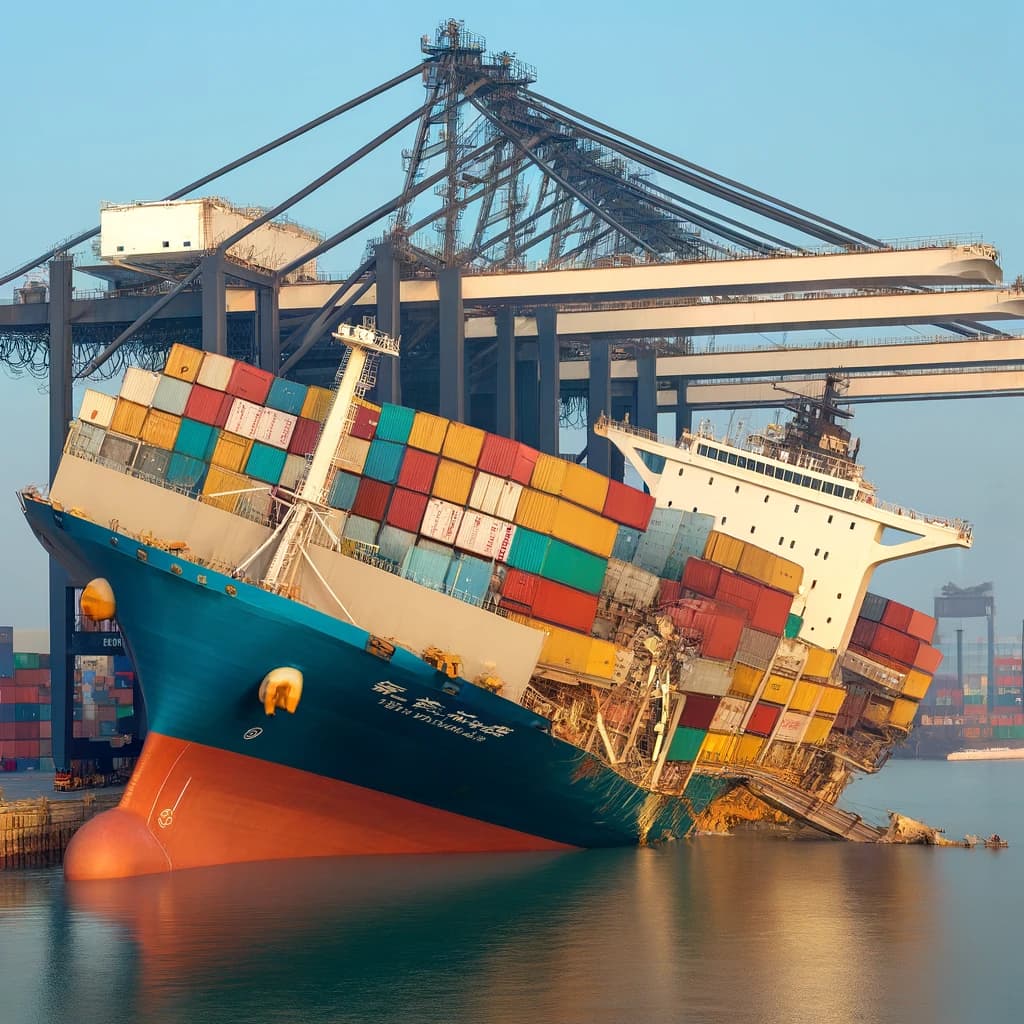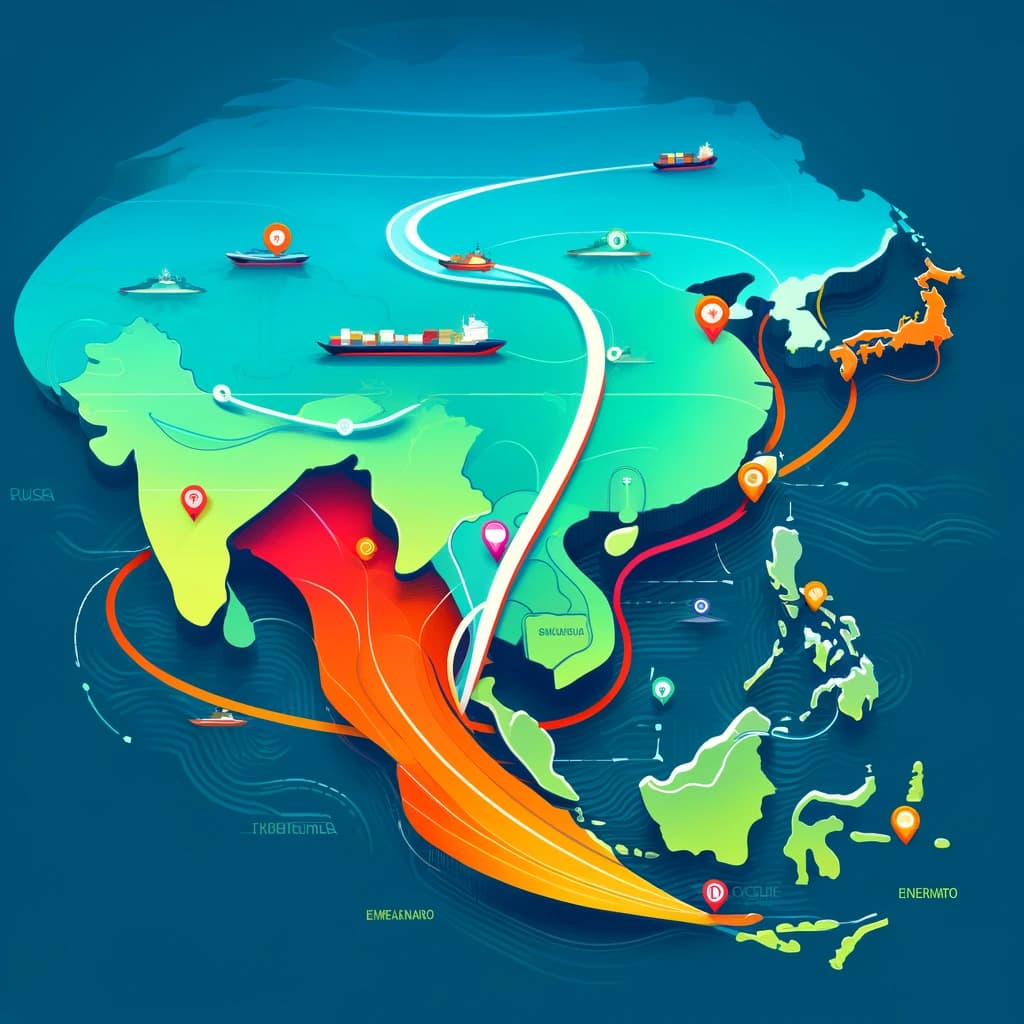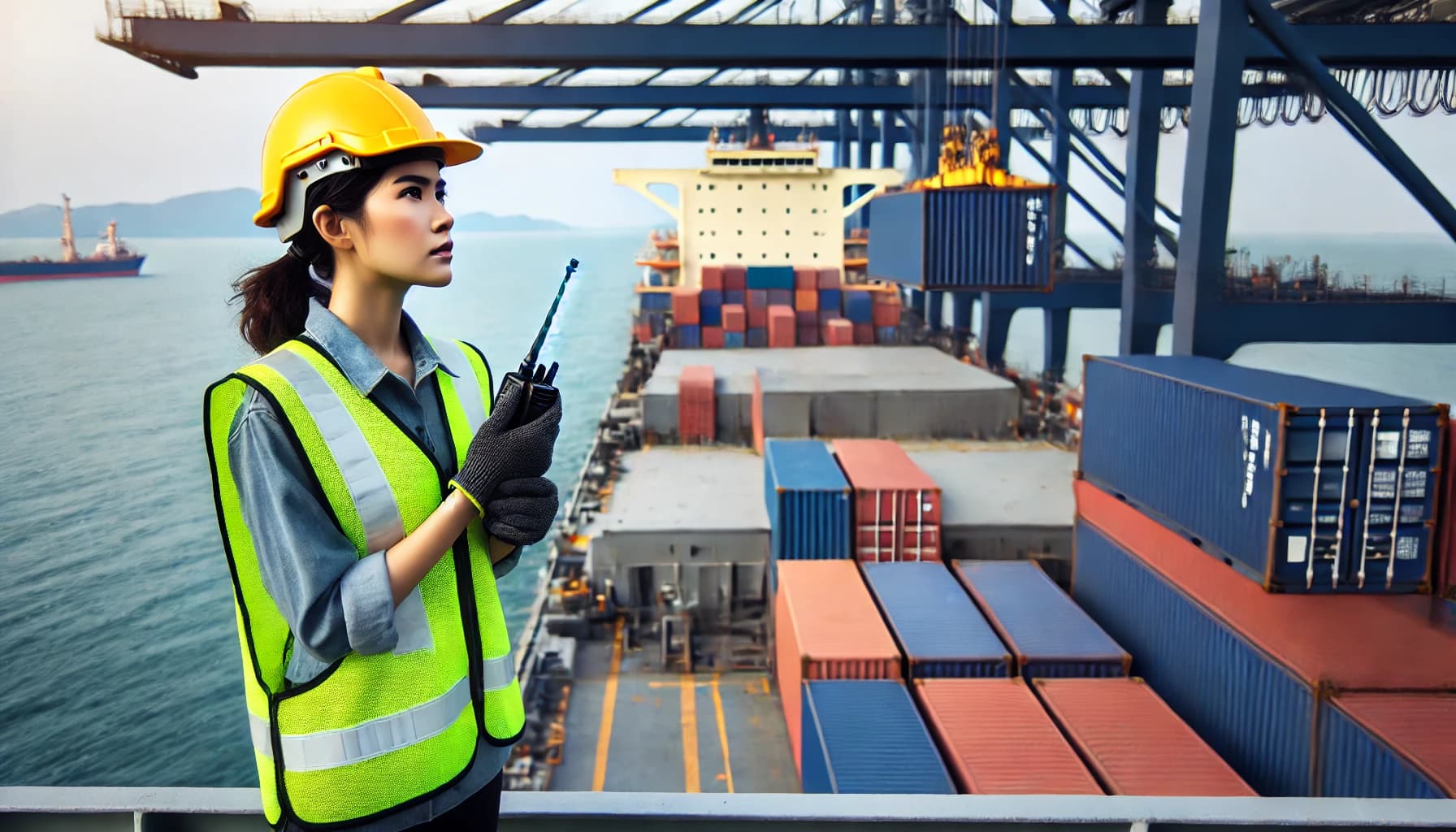Shore-Based Maritime Jobs: Port & Harbor Management Jobs

When most people think of the maritime industry, they envision container and cargo ships, luxurious cruise liners, huge oil or product tankers. However, behind the scenes, a crucial part of this global network is the port or harbor where these vessels, and others like them, dock.
The smooth operation of ports and harbors relies on a dedicated team of professionals working tirelessly to ensure efficiency, safety, and productivity. For those interested in the shipping industry or seafarers looking for a maritime career ashore, port and harbor management jobs can offer an exciting and dynamic option.
This is one in a series of articles in which we look at different shore-based maritime careers, so keep on reading if jobs in port management sound like they could be the career for you.
What do port and harbor management jobs involve?
As a shore-based maritime job, port and harbor management encompasses a range of roles and responsibilities, all focused on overseeing the operations, logistics, and safety of a port or harbor. This sector is a cornerstone of global trade, tourism, and transport, handling everything from container ships loaded with consumer goods to cruise ships filled with tourists.
A typical day in port management might include:
Vessel traffic coordination
One of the primary tasks of this shore-based maritime job is to manage vessel traffic, ensuring ships enter, berth, and exit the port safely. This involves coordinating with marine pilots, tug operators, and shipping agents to prevent congestion and accidents. A keen understanding of maritime navigation and regulations is essential here.

Logistics and operations
Ports are busy hubs where timing is everything. Port managers are responsible for coordinating cargo operations, overseeing loading and unloading, and minimizing delays. This requires strong organizational skills and the ability to solve problems on the fly.
Safety and security
Safety is paramount in any port environment. Those working in port manager jobs must enforce strict safety protocols to protect workers and equipment. This includes everything from ensuring compliance with International Ship and Port Facility Security (ISPS) regulations to conducting regular safety inspections.
Environmental management
With growing environmental awareness, ports now have a responsibility to minimize their ecological impact. This might involve managing waste disposal, monitoring air and water quality, and implementing sustainable practices like reducing emissions from docked ships.
Financial oversight
A significant aspect of port management is financial planning. Port and harbor managers must create budgets, track expenses, and find ways to increase profitability, whether through optimizing operations or attracting new business.
Read more: Shore-Based Maritime Jobs: How to Become a Marine Surveyor
Key roles in port and harbor management jobs
Port and harbor management is a diverse field, encompassing several specific roles, each with its own focus:
Harbormaster
Often considered the ‘face’ of the port, the harbormaster is responsible for the overall coordination of port activities, including ensuring safe navigation, overseeing the docking process, and enforcing maritime laws and regulations.
Port Operations Manager
This role focuses on the logistics side of port management, including scheduling, cargo handling, and ensuring smooth coordination between different port services.

Marine Terminal Manager
These shore-based maritime jobs involve overseeing the terminal facilities where goods are loaded and unloaded. Terminal Managers work closely with shipping companies and logistics providers to ensure efficient cargo operations.
Port Safety Officer
A port safety officer is responsible for implementing and monitoring safety protocols, conducting risk assessments, and responding to emergencies or hazardous situations.
Environmental Manager
With increasing emphasis on sustainability, many ports now employ environmental managers who focus on reducing the port’s environmental footprint through initiatives like waste management, pollution control, and the adoption of green technologies.
How to start a career in port and harbor management
If you’re interested in pursuing a career in port and harbor management, there are several paths you can take. Bear in mind that specific educational and experience requirements can vary from country to country and even port to port, but here are some general steps to get started:
Education and training
A strong educational foundation is crucial for most roles in port management. While it’s possible to work your way up through hands-on experience, most employers look for candidates with a relevant degree or professional certification.
Degree programs
Degrees in fields like maritime studies, logistics, business administration, or marine engineering are highly beneficial. Many universities and maritime academies offer specialized programs in port and harbor management.

Professional certifications
Certifications like the International Maritime Organization’s (IMO) Port Facility Security Officer (PFSO) or courses offered by the International Association of Ports and Harbors (IAPH) can provide a competitive edge.
Gaining experience
Experience is key in this field, and starting with an entry-level position in a port or related maritime sector can be an excellent way to gain practical skills. Roles like dock worker, logistics coordinator, or marine operations assistant offer valuable exposure to the daily operations of a port.
Many successful port managers also come from a seafaring background, transitioning from roles like Chief Officer or ship Master (Captain). Their knowledge of navigation, vessel handling, and maritime regulations provides a strong foundation for managing port activities.
Developing skills
Port management requires a diverse skill set, blending technical knowledge with strong organizational and leadership abilities. Here are some key skills to focus on:
Leadership and communication
Managing a team and coordinating with various stakeholders are essential aspects of port management. Effective communication is critical when dealing with shipping companies, government agencies, and terminal operators.
Problem-solving
Ports are complex environments where unexpected issues can arise, from delays in cargo handling to emergency situations. Being able to think quickly and find solutions is a vital skill for almost any shore-based maritime job.

Understanding of maritime regulations
Port managers must be well-versed in national and international maritime regulations, including safety protocols, environmental laws, and security standards.
Networking and professional development
Many land-based jobs in the maritime industry, from Maritime Recruitment Officer to marine regulatory authority jobs place a strong emphasis on relationships and networking. Building a solid network of contacts can open doors to job opportunities and career advancement.
Consider joining industry associations such as the International Harbour Masters’ Association (IHMA) or the International Association of Ports and Harbors (IAPH), which offer resources and networking events for professionals.
Why port and harbor management jobs are ideal for ex-seafarers
For those currently working in a seafarer job and looking to transition to a land-based maritime role, port and harbor management offers a natural fit. Here’s why:
Relevant experience
Many skills gained at sea, such as navigation, vessel handling, and safety compliance, are directly applicable to port operations. Ex-seafarers have a deep understanding of ship behavior, maritime weather patterns, and the intricacies of docking and berthing, making them ideal candidates for roles like harbormaster or port operations manager.
Industry knowledge
Seafarers have firsthand experience with the logistics and operational challenges faced by ships, giving them a unique perspective when managing port activities. Their familiarity with maritime regulations and safety standards is also a significant asset.

Work-life balance
One of the main reasons those who have previously worked in seafarer jobs transition to shore-based roles is to achieve a better work-life balance. Port management offers a stable career path without the extended time away from home that comes with life at sea.
Career advancement opportunities
Port and harbor management roles often come with opportunities for growth and specialization, whether moving into senior management positions or focusing on areas like environmental management or logistics.
The future of port and harbor management jobs
The maritime industry is evolving rapidly, with advances in technology, sustainability initiatives, and increased focus on efficiency shaping the future of port operations. This creates exciting opportunities for those entering the field:
Automation and digitalization
Smart ports using automation and digital tools like blockchain and artificial intelligence (AI) are becoming more common, transforming the way goods are tracked and handled. Managers who embrace these technologies can help streamline operations and reduce costs.
Sustainability initiatives
With the global push for greener practices, ports are focusing on reducing emissions and adopting renewable energy sources. This shift offers new roles in environmental management and sustainable logistics.
Global trade growth
As international trade continues to grow, ports will continue to play an increasingly important role in the global supply chain. This expansion means a growing demand for skilled professionals in port management.

Port and harbor management jobs: final thoughts
Port and harbor management is a rewarding career path for anyone with a passion for shipping and logistics and who is looking for a maritime job based on land - whether you’re starting fresh or transitioning from working in a job at sea.
Jobs within the field offer the chance to be at the heart of global trade, tackling new challenges every day while helping to shape the future of port operations. With the right mix of education, experience, and skills, you can build a successful and fulfilling career in this dynamic sector.
Read the previous article in this series: Shore-Based Maritime Jobs: What is a Shipbroker Job?
Read the next article in this series: Shore-Based Maritime Jobs: What Does a Maritime Lecturer Do?

Eve Church
Eve is Martide's content writer, publishing regular posts on everything from our maritime recruitment and crew planning software to life at sea. Eve has been writing professionally for more than two decades, crafting everything from SEO-focused blog posts and website landing pages to magazine articles and corporate whitepapers.
UK

is the only site for maritime jobs



